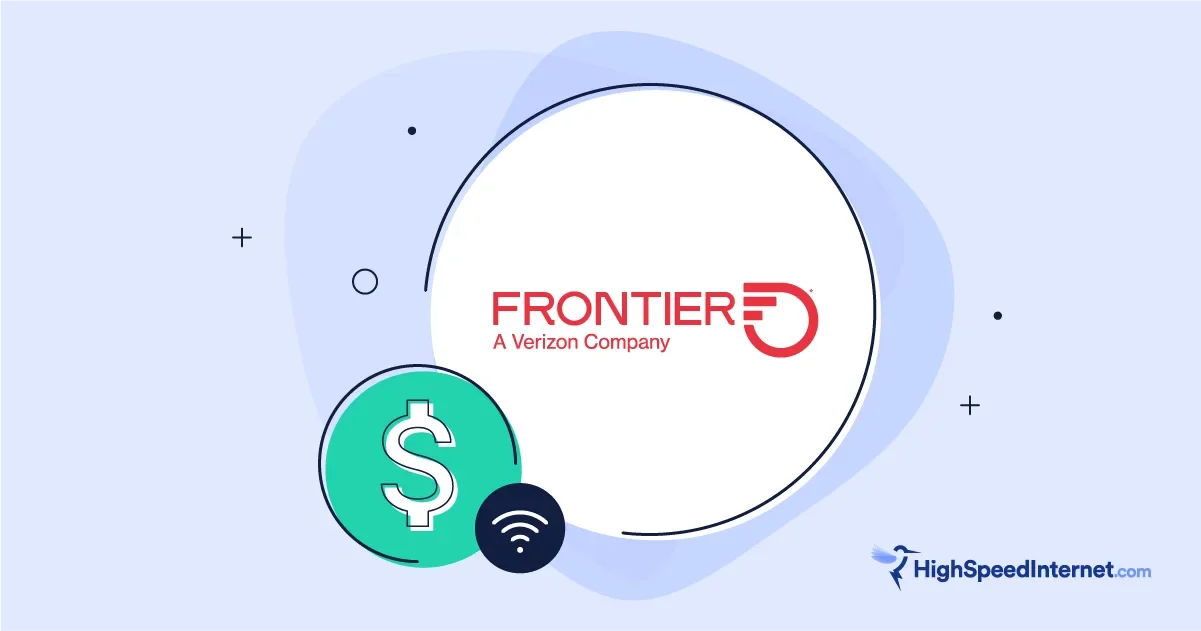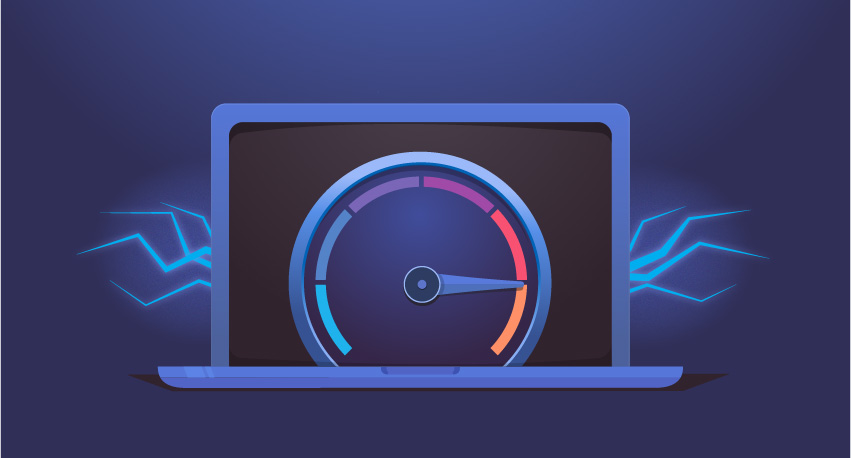6 Ways to Help Avoid Data Overage Charges
Jul 10, 2017 | Share
FAQ
You have probably heard about anecdotal tales of people getting data overage bills for thousands of dollars. These stories are not urban legends. They have definitely happened.
If you don’t believe me check this out: A woman bought a netbook from Radio Shack and got the shock of her life by a bill for $5,000. The AT&T 5 GB plan evidently charged around $480 per GB over the limit.
Part of me sympathizes with that woman, but another part says, you should be responsible for what you do and suffer the consequences if you mess up. Hopefully, this article will help you avoid such problems.
Table of Contents
Shopping around for new internet?
Enter your zip code below to see which providers are available in your area.
1. Check Your Plan
The first thing is to check your data plan. Are you a streaming monster that just can’t stay away from movies 24/7? It would be a shame if you get that 200 MB plan to save money!
Get the data plan that best meets your needs. One of my Broadband Expert cohorts found a pretty good data calculator that can estimate your usage. I score 8.43 GB per month, so I really need a 10 GB plan. However, if someone comes up with an 8 GB plan, there may be some tricks to live with those overages by picking the right plan.
Some vendors are playing follow the leader with AT&T and are adding data caps. Along with the caps come the overage charges.
Check other vendors with unlimited or reasonable data plans and you may be able to lock in some data for your future use. Some vendors just throttle you down when you reach the limit, so you will not get hit with extra charges – just slow data.
2. Data Overage May Be Good
No, I am not out of my mind, at least clinically, but listen to me for a bit. Occasional overages may be cost-savers. If you have occasional data overages and have reasonable rates for the overage charges (stay away from those insanely expensive overage plans) you can save some money.
Compare the base costs for a year of both plans and you may find that you are spending more money for that higher plan than you pay for the lesser plan with overages. If the yearly cost of your smaller plan plus the overage charges is less than the yearly cost of the next expensive plan, you are in the right spot.
After all, any way you can save money is good! As always, pay attention to any changes that your wireless vendor may spring upon you.
Finally, getting bit by overage charges tends to change one’s usage, but this article is how to avoid those nasty overage charges.
3. Reduce Your Data Usage
Many web pages constantly update themselves, so your smartphone will be constantly refreshing the page every minute or so. It may not seem like a lot, but it can add up if it goes 24/7 for a month.
Multi-tasking operating systems that allow you to run multiple web sessions at once can get you into even bigger trouble as all those webscreens are running. Many web pages also have those annoying video advertisements that constantly run.
Add to that the Java and Flash programs and you can run up some data usage without really being aware of it. Now that I told you about it, there is no excuse for you to complain.
Make sure you close down any apps that use the web. A live map program running that showed you the way to San Jose is no longer needed once you arrive.
Many social apps constantly update, so shut them down when you are not using them. This is sort of like turning off the lights when you leave the room – you just have a lot more switches to turn off!
4. Use Wi-Fi
Wi-Fi is another alternative you can use to prevent data overage charges. When you use Wi-Fi on your mobile device, you don’t add to your data usage.
If you are at home and have an unlimited data plan with no throttling, then go right ahead and use your Wi-Fi connection. If you do not have a Wi-Fi router, you can buy one for under a hundred. Just be sure to set up the security as you don’t want the whole world using your data connection.
I do not recommend searching for an open wireless connection and using it “for free”. First, it is unethical. Second, it may be illegal in your area. The third reason can get your attention: a kid hacker can be sitting on the other side of that router just waiting for some unsuspecting “visitor” to fall into his or her trap.
There are plenty of free Wi-Fi routers (hot spots) available for your use. Many coffee shops offer free Wi-Fi for their customers. I have seen people spend the whole day in a coffee shop up the corner from where I live, nursing one or two cups of coffee or hot chocolate.
OK, maybe it is not free, but it is inexpensive. Take a $1.75 hot chocolate times thirty equals a $52.50 unlimited data plan with no overages!
Some bookstores offer free Wi-Fi and don’t hassle you if you spend all day there in their reading area with your mobile device or laptop. You don’t even have to buy drink from their coffee shop, although I would suggest it just to be fair.
You can probably even park outside one of these establishments and pick up a useable signal. If you have too weak a signal, you can construct a high-gain Wi-Fi antenna out of a Pringles potato chip can that will allow you to use that weaker signal.
Just search for “Pringles antenna” and you will find the plans or look up “Cantenna” on Wikipedia.
So, what if you don’t want to stay at a coffee shop or bookstore all day? Instead of streaming movies, download them instead. Then you can take them and watch wherever you wish.
If you are a YouTube junkie, er, aficionado, there are apps and browser add-ins that let you download the video so you can take them with you. So just visit your local free Wi-Fi hot spot and load up your mobile device, sort of like filling up at the gas station.
5. Roaming
Check your roaming options on your data plan and learn how to check if you are roaming on your data connection before downloading that movie. A lot of people are used to unlimited roaming on their voice plans, but may be in for a surprise when they first start using that data plan.
This goes back to checking your data plan and contract. Always check the plan out thoroughly before using it. Lawyers usually perform due diligence (at least the ones that are still in business) and you should too.
If you are going to be in an area where your provider does not provide data service, buy a prepaid SIM card with a data plan and use it. This is especially important when travelling overseas.
6. Monitoring
It is your responsibility to keep track of your usage. Just about every wireless vendor provides an automated way to check your usage. You may have to send a free text message to a special number or go to a web site, but you can definitely find out how much of your data plan you have used so far.
Until you have an idea of how much data you use, check often on your usage. I recommend checking often anyway as you could forget some of the other things I told you to do and start running up data charges. At least you will be able to catch such an omission quickly.
If you cannot find how to check your data usage, just call up your vendor and they will be able to walk you through how to do it or even tell you how much data you used.
There are some people in Washington D.C. who think the government should step in and help. The FCC is considering regulations that will mandate the data providers notify you when you are getting close to using up your data allotment.
It is interesting that AT&T has a system that notifies iPad users they are getting close to exceeding their limit and even offers to upgrade you for more data (and for more money shoveled into their coffers).
Finally, there are several programs priced from free to a modest cost that will monitor your data usage for you. Needless to say, you get what you pay for.
If you wish multiple notifications as you reach various thresholds, the free monitors will probably not meet your needs. I wouldn’t complain about a modest price, as it will save you a ton of money in data overage charges – if you pay attention to the notifications.
Author - Monique
Monique is a recent transplant to Utah from the Windy City. She has a well-rounded Marketing background from Consumer Research to Digital and is now testing the waters in freelance writing. In her spare time she likes to spend time outdoors hiking in Utah's beautiful terrain, playing tennis, baking somewhat healthy treats and hanging out with her Cocker Spaniel.




